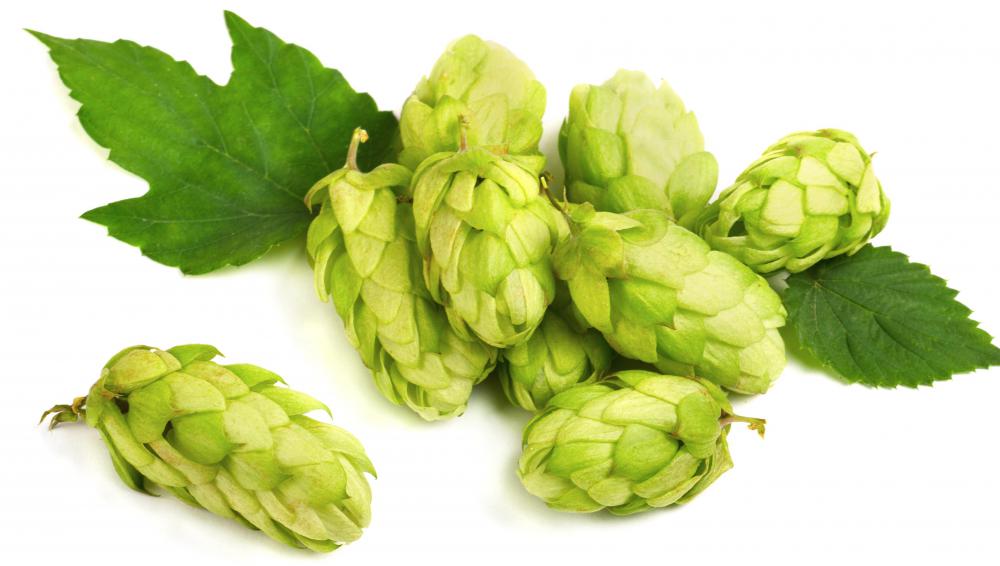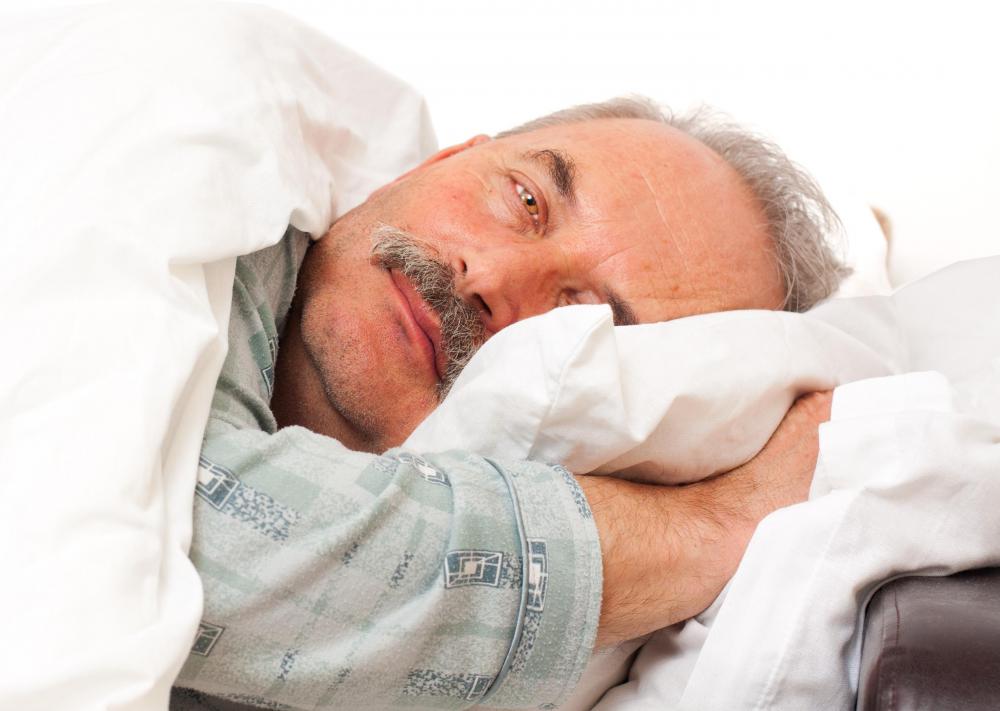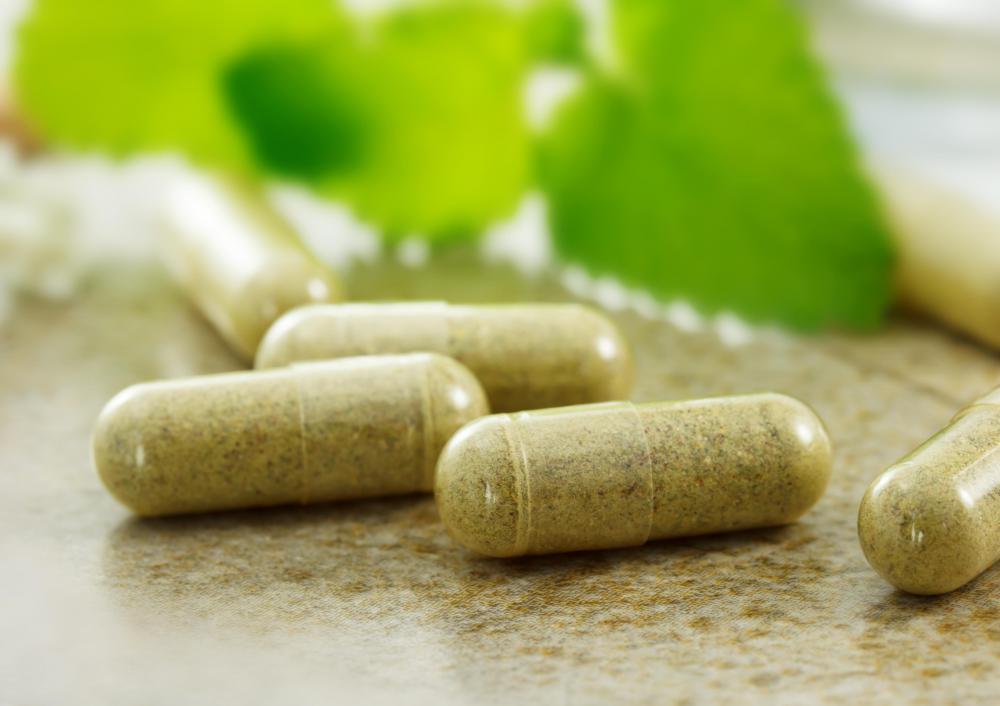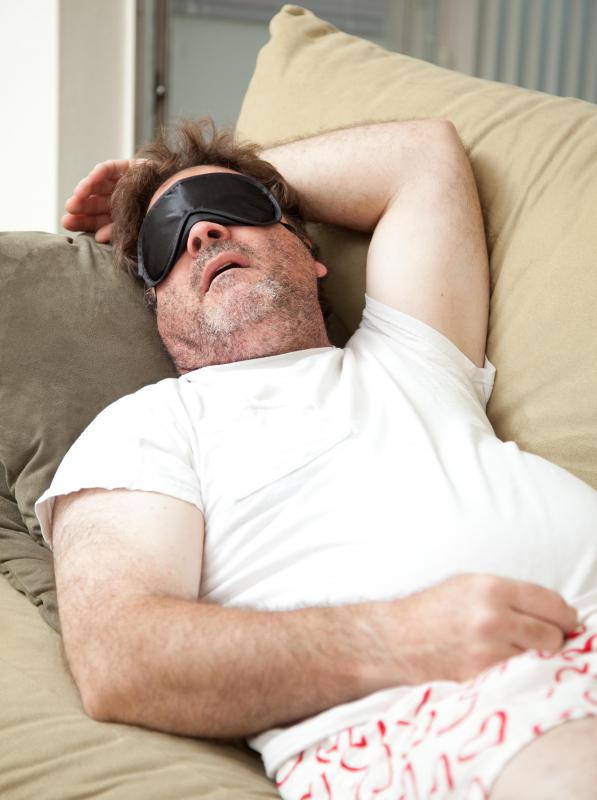At WiseGEEK, we're committed to delivering accurate, trustworthy information. Our expert-authored content is rigorously fact-checked and sourced from credible authorities. Discover how we uphold the highest standards in providing you with reliable knowledge.
What are the Different Types of Non-Prescription Sleep Aids?
There’s a wide variety of non-prescription sleep aids on the market, ranging from over-the-counter sleeping pills and devices that block light and sound to folk remedies and herbal teas. While none of these sleeping aids require a prescription, some still carry the risk of side-effects or may be harmful if abused. A person should always consult with a doctor when considering non-prescription sleeping aids, as a medical professional is best qualified to determine the source of a patient's sleeplessness and will recommend a sleep aid that’s best for that particular issue.
For those experiencing sleeplessness due to environmental distractions like light and sound, the simplest non-prescription sleep aids include sleeping masks and earplugs. Sleeping masks are designed to block out light, whether artificial or natural, as light stimulates the body to wakefulness. Earplugs, which are available in materials like foam, silicone, and wax, are designed to block out sounds that prevent sleeping. White noise machines are modern sleep aid devices that produce background noise that helps block out other sounds. Most white noise machines produce sounds of nature or static crackling than actual white noise.

Home remedies, which include items that are traditionally considered non-medicinal and are typically found in the home, are also used as non-prescription sleep aids. For example, drinking a cup of warm milk or hot cocoa before bedtime has long been thought to induce sleep. Peanut butter and various foods that are heavy in carbohydrates, such as pasta and bread, have also been thought to induce sleepiness when ingested.

There are various herbal teas that are also marketed as non-prescription sleep aids. These teas usually contain one of the oldest herbal sleep aids — chamomile, in their blend. The chamomile plant’s ability to induce drowsiness has been attributed to its flavonoid component, Chrysin, which can also be found in Passionflower. Herbal teas promoted as non-prescription sleep aids may also contain eleuthero, which is a shrub that’s sometimes referred to as “Siberian Ginseng” or valerian, an herb that’s believed to have a sedative effect.

Most major brand-name pain relievers sell a line of products for inducing drowsiness that usually feature the brand name followed by the words “PM” or “night time.” These sleeping pills are available without a prescription, but are often kept behind the pharmacy counter so the pharmacist can consult with the customer prior to selling the pills. These sleep aids can cause various side-effects and can also become habit-forming.
AS FEATURED ON:
AS FEATURED ON:

















Discussion Comments
For me, the best OTC sleep aids are herbal or natural sleep aids. I don't want to take an NSAID along with a sleep aid, because I'm concerned about possible liver damage or addiction. I don't have that problem with the natural sleeping pills I buy at the health food store. They may not hit me as hard as prescription sleep aids, but I also don't experience hallucinations like I used to with those chemical sleeping pills.
I like the PM over the counter sleep aids the best, as long as I don't try to fight them. I take one or two pills about an hour before I want to go to bed, and then I start winding down my day. Usually I'm asleep within 20 minutes of lying down if I take OTC sleep aids. If I fight through the first hour of drowsiness, however, they don't always work like they should.
I've had some really bad experiences with prescription sleeping pills, so now I only go with over the counter sleep aids. The best sleep aid I've ever used was not a pill, though. It was a relaxation technique. I found that my main problem with sleeping was that I wasn't going to bed when I was truly ready to sleep. I'd pick a time based on the next morning's work schedule, just like a child going to bed early because of school.
Once I decided I wasn't going to let the clock decide my bedtime, I started sleeping better. Some nights I would be ready to get into bed by 9pm, but then other nights I wouldn't feel sleepy until midnight or later. When that feeling came over me, I wouldn't fight it artificially to finish watching a movie or anything else. My body wanted to go to sleep, so that's what I did. I rarely take sleep medications these days.
Post your comments